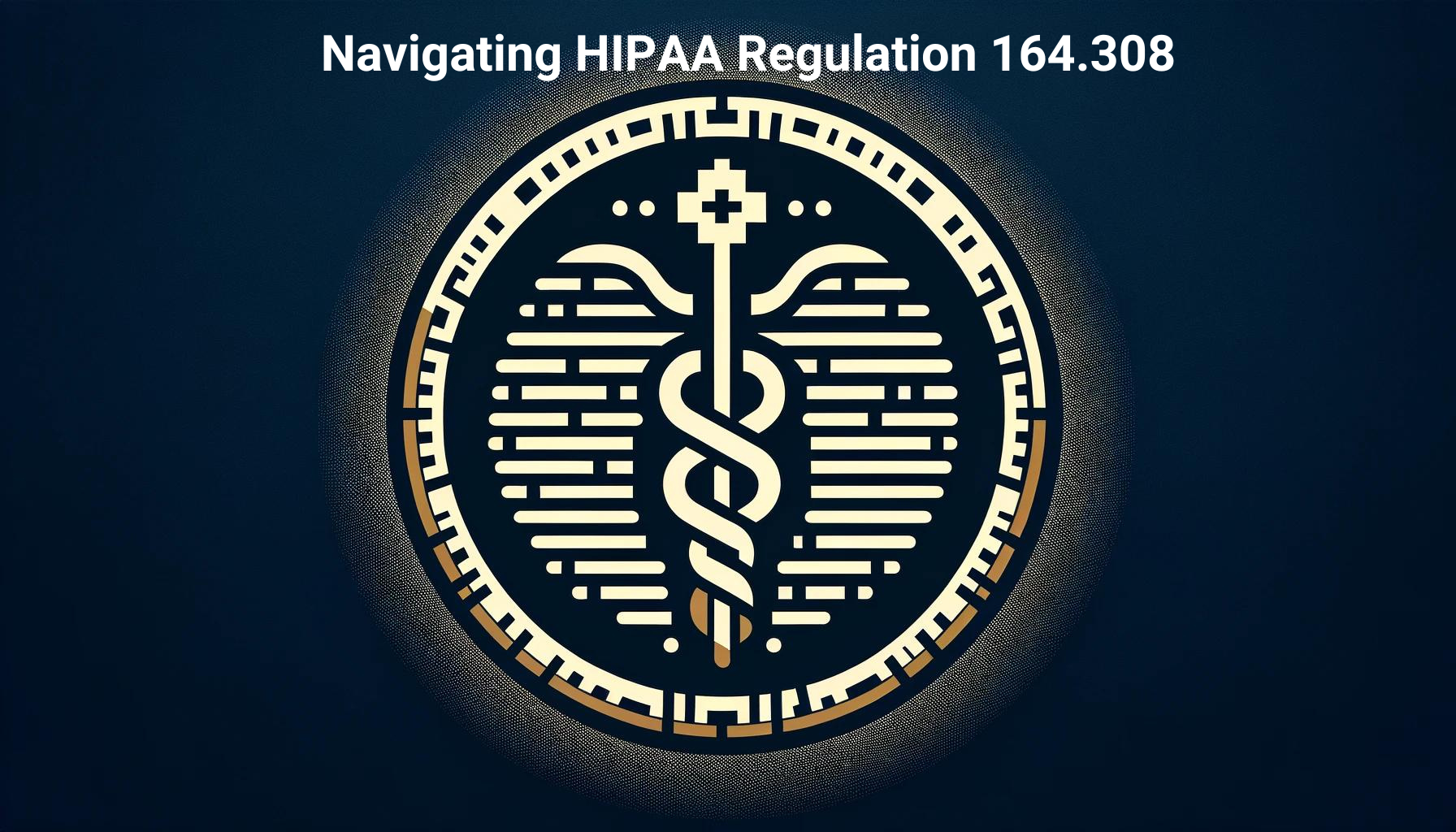
Ensuring electronic Protected Health Information (ePHI) security and confidentiality is paramount in healthcare. HIPAA Regulation 164.308 provides a framework for implementing administrative safeguards to manage this responsibility effectively. Let’s dive into the critical aspects of this regulation and how healthcare practices can comply:
- Security Management (164.308): A Holistic Approach
The Security Management standard under 164.308 is designed to help practices establish robust policies and procedures to prevent, detect, contain, and correct security violations. It emphasizes the importance of a comprehensive security program encompassing various facets of ePHI protection.
- Assign Security Responsibility (164.308(a)(2))
Each practice must designate a security official responsible for developing and implementing HIPAA-required policies and procedures. This role involves establishing a security program, ensuring IT purchases align with the practice's security policies, investigating security incidents, ensuring staff training, and conducting annual security compliance reviews.
- Risk Analysis (164.308(a)(1)(ii)(A))
Risk analysis is mandatory to assess potential risks and vulnerabilities to ePHI. This analysis should identify potential security risks, evaluate the likelihood and impact of these risks, and describe the controls implemented to mitigate them. Also, maintaining an inventory of all IT equipment, systems, and access records is vital.
- Risk Management (164.308(a)(1)(ii)(B))
Practices must implement security measures to reduce identified risks and vulnerabilities. This includes comprehensive HIPAA security training for all employees and ongoing education on updates and policy changes. Regular reviews of HIPAA security policies and employee training are crucial components of risk management.
- Sanction Policy (164.308(a)(1)(ii)(C))
A formal sanction policy is required to address non-compliance with security policies and procedures. This policy should outline penalties based on the violation's severity and the process for reporting and disciplining non-compliant employees.
- Information System Activity Review (164.308(a)(1)(ii)(D))
Regularly reviewing records of information system activity, such as audit logs and access reports, is essential. This helps monitor unauthorized access and ensures compliance with access and security policies. Maintaining records of these reviews and documenting incidents and corrective actions is also necessary.
Dasera's Role in HIPAA Compliance
Dasera is a crucial player in empowering healthcare practices to enhance their data security and governance measures in the intricate landscape of HIPAA compliance. Its capabilities align with the administrative safeguards outlined in HIPAA Regulation 164.308. Let's explore how Dasera can be instrumental in various aspects of HIPAA compliance:
- Automated Risk Analysis and Management: With its advanced analytics capabilities, Dasera can automate risk analysis by identifying and assessing potential vulnerabilities and threats to ePHI. This includes analyzing data access patterns and flagging any unusual or unauthorized activities. By automating this process, Dasera helps healthcare practices maintain a continuous and proactive approach to risk management, an essential requirement of HIPAA.
- Policy Enforcement and Incident Response: Dasera can enforce data security policies by ensuring that ePHI is accessed and handled only per established protocols. In the event of a security incident, Dasera enables quick detection and containment, speeding up incident response and minimizing the potential impact. This aligns with HIPAA's requirement for prompt action in the event of a security breach.
- Comprehensive Audit Trails and Logging: One of the critical aspects of HIPAA compliance is maintaining detailed records of access and activity involving ePHI. Dasera's logging capabilities provide an auditable trail of all data interactions, which is invaluable during compliance audits or investigations. This feature not only aids in compliance but also provides insights for ongoing security improvements.
- Integration with Existing Healthcare IT Systems: Dasera's platform can seamlessly integrate with a healthcare practice’s existing IT infrastructure, enhancing the security of ePHI without disrupting current workflows. This integration ensures that all aspects of ePHI management, from storage to access, are governed under a unified security framework.
- Customizable Compliance Reporting: Dasera enables healthcare practices to generate customized reports that detail their compliance status with HIPAA regulations. These reports can be used for internal audits, compliance reviews, and board meetings to demonstrate the practice’s commitment to data security.
By leveraging Dasera’s capabilities, healthcare practices can comply with HIPAA regulations and foster a culture of data security and patient privacy. Dasera's role extends beyond compliance; it's about empowering healthcare providers to safeguard one of their most valuable assets: patient data.
HIPAA Regulation 164.308 provides a comprehensive framework for managing ePHI security. By understanding and implementing these standards, healthcare practices can ensure they comply with HIPAA requirements and effectively protect patient data. Tools like Dasera can be instrumental in achieving and maintaining this compliance.









